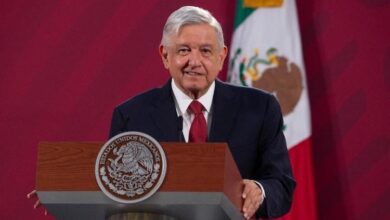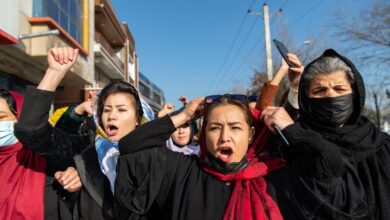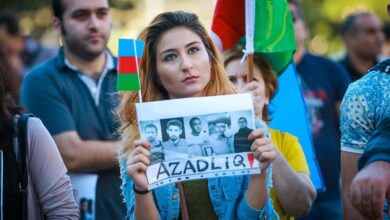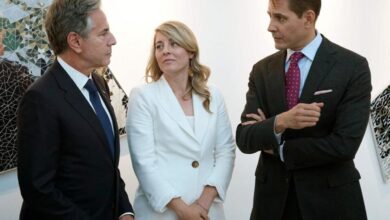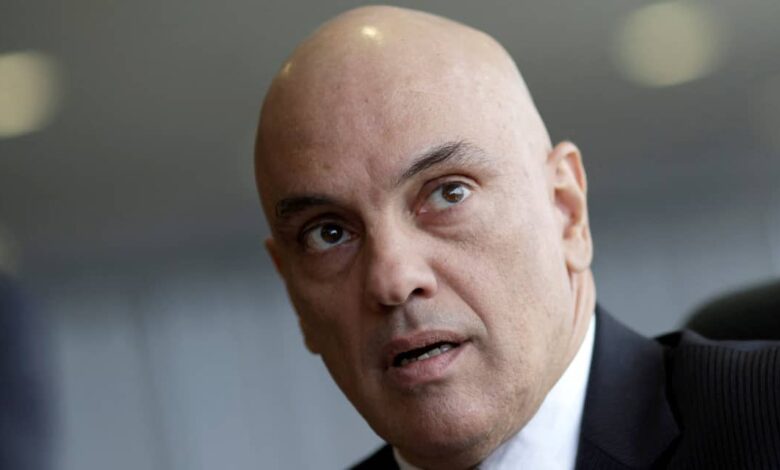
The Case for Free Speech in Brazil and Beyond
The Case for Free Speech in Brazil and Beyond: Brazil, a vibrant democracy with a complex history, presents a fascinating case study in the ongoing struggle for free expression. From its colonial past to its present-day digital landscape, the battle for open dialogue and the limitations placed upon it have shaped the nation’s identity. This exploration delves into the legal frameworks, social movements, and technological influences that define Brazil’s free speech reality, comparing it to global standards and highlighting both triumphs and ongoing challenges.
We’ll examine the historical context, exploring landmark legal cases and social movements that have shaped the current understanding of free speech. We’ll then compare Brazil’s approach to free speech with international standards, considering the influence of international human rights frameworks and organizations. The role of media, both traditional and digital, will be analyzed, along with the impact of social media platforms on the spread of information and the potential suppression of dissenting voices.
Finally, we’ll consider the intersection of free speech with minority rights and the complexities of balancing free expression with the protection of vulnerable groups, offering a global perspective by looking at similar struggles in other regions.
Historical Context of Free Speech in Brazil
Brazil’s journey toward free speech has been a complex and often turbulent one, marked by periods of authoritarian rule punctuated by fits and starts of democratic progress. The nation’s history profoundly shaped its current understanding of freedom of expression, a right constantly negotiated and redefined in the face of social and political pressures. Understanding this evolution requires examining the interplay between legal frameworks, landmark cases, and the influence of powerful social movements.The colonial period, under Portuguese rule, saw limited freedom of expression.
Censorship was commonplace, and dissent was often met with harsh repression. Following independence in 1822, the newly formed Brazilian Empire implemented laws that, while not explicitly suppressing speech, often restricted it through indirect means, such as limitations on the press and restrictions on public gatherings. This pattern of control continued into the early years of the republic.
The Vargas Era and the Suppression of Dissent
The rise of Getúlio Vargas’s Estado Novo dictatorship (1937-1945) significantly curtailed free speech. Vargas’s regime employed extensive censorship, suppressing opposition voices through the control of media outlets and the persecution of political opponents. This period witnessed a dramatic decline in freedom of expression, with many journalists, writers, and activists facing imprisonment or exile. The legal framework was used to justify this repression, with laws enacted that criminalized any form of dissent deemed harmful to national security or public order.
This era established a chilling effect on public discourse that would linger for decades.
The Military Dictatorship and the Fight for Freedom of Expression
The military dictatorship (1964-1985) represented another dark chapter in Brazil’s history of free speech. The regime systematically suppressed dissent through censorship, arbitrary arrests, torture, and the disappearance of countless individuals. The AI-5 (Ato Institucional Número Cinco), a 1968 decree, granted the military government sweeping powers, effectively eliminating any meaningful protection of free speech. However, even under these harsh conditions, resistance emerged.
Underground publications, clandestine radio broadcasts, and courageous journalists risked their lives to challenge the regime’s narrative. These acts of defiance, though perilous, played a vital role in maintaining a spark of free expression and ultimately contributed to the eventual return to democracy.
The Post-Dictatorship Era and the Consolidation of Free Speech Rights
The transition to democracy in the 1980s brought with it a renewed focus on fundamental rights, including freedom of speech. The 1988 Constitution enshrined freedom of expression as a cornerstone of Brazilian democracy, explicitly guaranteeing the right to express one’s thoughts and opinions freely, with certain limitations. This constitutional guarantee, however, has not been without its challenges. The ongoing struggle for a truly free and inclusive public sphere involves grappling with issues such as hate speech, defamation, and the potential for censorship in the digital age.
The fight for free speech in Brazil, and globally, is crucial for exposing injustices. Think about the vulnerability of marginalized groups; for example, reading this article highlighting how Ukraines Roma have suffered worse than most in the war underscores the need for open dialogue to ensure their voices are heard. Without free speech, such atrocities might remain hidden, emphasizing the importance of this fundamental right everywhere.
Landmark Supreme Court cases have played a critical role in shaping the interpretation and application of these constitutional guarantees, continuously clarifying the boundaries of permissible speech while upholding the fundamental principle of freedom of expression. The ongoing dialogue surrounding these issues underscores the dynamic and evolving nature of free speech in Brazil.
Comparing Brazilian Free Speech with International Standards
Brazil’s journey toward robust free speech protections is a complex one, marked by historical struggles and ongoing challenges. Understanding its current state requires comparing its legal framework and practical application with international norms and the experiences of other nations. This comparison reveals both areas of progress and areas needing further development.
Brazil’s constitution guarantees freedom of expression, but the interpretation and enforcement of this right are subject to ongoing debate and judicial review. International human rights standards, while influential, don’t always translate seamlessly into national legal realities. The interplay between domestic laws, international treaties, and the actions of international organizations shapes the landscape of free speech in Brazil.
Comparative Analysis of Free Speech Protections
The following table compares Brazil’s free speech protections with those of other countries, highlighting key similarities and differences. It’s important to note that the legal landscape is constantly evolving, and nuances within each country’s system require deeper investigation.
| Country | Legal Framework | Key Limitations | Notable Cases |
|---|---|---|---|
| Brazil | 1988 Constitution, guarantees freedom of expression with limitations for hate speech, defamation, and national security. | Laws against hate speech and defamation are sometimes used to stifle dissent. Judicial interpretation varies. | Cases involving journalists critical of the government, online hate speech, and defamation lawsuits against public figures. |
| United States | First Amendment to the Constitution, broad protection of speech with limitations on incitement, defamation, and obscenity. | Balancing free speech with other constitutional rights (e.g., privacy, national security) remains a challenge. Varying interpretations across jurisdictions. | Landmark Supreme Court cases like
|
| Canada | Charter of Rights and Freedoms, guarantees freedom of expression with limitations on hate speech and defamation. | Balancing free speech with protection against hate speech and group defamation is a constant judicial challenge. | Cases involving hate speech online and the limitations on free speech in the context of national security. |
| Germany | Basic Law, guarantees freedom of expression with limitations on hate speech, incitement to violence, and denial of the Holocaust. | Stricter limitations on hate speech and denial of historical atrocities compared to some other countries. | Cases involving neo-Nazi propaganda and online hate speech. |
International Human Rights Frameworks and Brazil’s Alignment
International human rights frameworks, particularly the Universal Declaration of Human Rights (UDHR) and the International Covenant on Civil and Political Rights (ICCPR), strongly emphasize freedom of expression. The UDHR articulates this right as fundamental, while the ICCPR Artikels specific limitations, emphasizing that restrictions must be necessary and proportionate. Brazil is a signatory to both instruments. However, the practical application of these principles in Brazil is a subject of ongoing discussion and legal interpretation.
Influence of International Organizations and Treaties
International organizations like the United Nations and the Organization of American States (OAS) play a role in influencing Brazil’s approach to free speech. Through reports, recommendations, and treaty monitoring mechanisms, these bodies exert pressure to uphold international human rights standards. The Inter-American Court of Human Rights, for example, has issued rulings on cases related to freedom of expression in Brazil, influencing domestic legal interpretations and judicial practices.
The influence of these organizations is indirect, relying on advocacy, reporting, and the potential for international scrutiny. However, their impact on the evolution of free speech protections in Brazil is undeniable.
The fight for free speech in Brazil, mirroring global struggles, highlights the importance of informed civic engagement. Understanding election dynamics is crucial, and learning how to interpret data, like in this helpful guide on how to read Americas early voting numbers , is key to holding power accountable. Ultimately, a free press and an informed electorate are inseparable components of a truly democratic society, both in Brazil and elsewhere.
Challenges to Free Speech in Brazil
Brazil, despite its constitutionally guaranteed freedom of expression, faces significant hurdles in maintaining a truly free and open public discourse. The interplay of various actors, from the government to social media companies, creates a complex and often contradictory landscape where the right to free speech is constantly tested and challenged. Understanding these challenges is crucial for protecting and strengthening democratic values in the country.
Several interconnected factors contribute to the erosion of free speech in Brazil. These include legal ambiguities, the rise of disinformation and hate speech online, and the increasing influence of powerful actors who seek to control the narrative. The lack of robust mechanisms to combat these threats further exacerbates the situation, creating an environment where freedom of expression is not always guaranteed in practice.
Censorship and Legal Ambiguities
The legal framework surrounding free speech in Brazil, while generally protective, contains ambiguities that can be exploited to restrict expression. Laws against defamation, for instance, are sometimes used to silence critics or those who expose wrongdoing. The lack of clear definitions and consistent application of these laws creates uncertainty and can lead to self-censorship, where individuals and organizations refrain from expressing their views for fear of legal repercussions.
Furthermore, the increasing use of national security concerns to justify restrictions on information access raises significant concerns about the potential for abuse.
The Role of Disinformation and Hate Speech
The proliferation of disinformation and hate speech, particularly on social media platforms, poses a grave threat to free speech in Brazil. False or misleading information can manipulate public opinion, undermine trust in institutions, and incite violence. Hate speech, targeting individuals or groups based on their race, religion, sexual orientation, or other characteristics, creates a climate of fear and intimidation, chilling free expression.
The rapid spread of this harmful content online makes it difficult to control and mitigate its impact.
The Influence of Social Media Platforms and Media Outlets, The case for free speech in brazil and beyond
Social media platforms play a significant role in shaping public discourse in Brazil. While they offer unprecedented opportunities for individuals to express themselves, they are also susceptible to manipulation and abuse. The algorithms that govern these platforms can amplify misinformation and hate speech, creating echo chambers that reinforce existing biases and prejudices. Furthermore, the lack of effective mechanisms for content moderation and accountability leaves users vulnerable to harassment and online abuse.
Traditional media outlets also have a significant influence, and their editorial decisions can impact the range of voices and perspectives that are heard in the public sphere. Concerns about media concentration and bias further complicate the issue.
The fight for free speech in Brazil, and indeed globally, is a constant uphill battle. Open dialogue is crucial for a healthy democracy, and that includes welcoming diverse perspectives. Interestingly, this ties into the positive impact of digital nomads, as highlighted in this insightful article: digital nomads are a force for good in latin america. Their presence often fosters cross-cultural understanding, which in turn strengthens the case for open communication and the free exchange of ideas – vital components in the ongoing battle for free speech.
Examples of Curtailed or Threatened Free Speech
The following examples illustrate specific instances where free speech has been curtailed or threatened in Brazil:
- The prosecution of journalists and activists under vaguely defined laws, leading to self-censorship and a chilling effect on investigative reporting.
- The spread of disinformation campaigns during election periods, aiming to influence voter behavior and undermine democratic processes.
- Online harassment and abuse targeting journalists, human rights defenders, and other individuals who express dissenting opinions.
- The use of legal action to silence critics of powerful individuals or institutions.
- Instances of censorship on social media platforms, often in response to pressure from government officials or powerful private actors.
The Role of Media and Technology in the Brazilian Free Speech Debate
The interplay between media, technology, and free speech in Brazil is a complex and dynamic landscape, constantly shaped by evolving technological advancements and shifting socio-political contexts. Traditional media outlets, while facing their own challenges, still hold significant influence, while the rise of digital platforms has introduced both unprecedented opportunities and new threats to the free exchange of ideas.Traditional media, encompassing television, radio, and print newspapers, have historically played a crucial role in shaping public opinion and holding power accountable in Brazil.
However, their reach is increasingly challenged by the fragmentation of the media landscape and the concentration of ownership in the hands of a few powerful conglomerates. This concentration can limit diversity of voices and perspectives, potentially hindering a robust free speech environment. Conversely, independent journalism, though often facing financial and political pressures, continues to be a vital pillar of democratic discourse.
The Impact of Digital Media on Free Speech
The digital revolution has profoundly altered the Brazilian media landscape, democratizing access to information and enabling citizens to participate in public discourse in unprecedented ways. Social media platforms like Facebook, Twitter, and WhatsApp have become primary sources of news and information for many Brazilians, bypassing traditional gatekeepers. This has empowered marginalized communities and fostered greater civic engagement. However, this democratization is not without its drawbacks.
The ease with which misinformation and disinformation can spread online poses a significant threat to free speech, potentially undermining trust in legitimate news sources and fueling social polarization. The rapid dissemination of “fake news” during election cycles, for example, has demonstrated the potential for digital platforms to be manipulated for political gain, suppressing dissenting voices and undermining democratic processes.
Social Media Platforms and the Suppression of Dissenting Voices
The algorithmic nature of social media platforms can inadvertently, or intentionally, limit the reach of certain viewpoints. Algorithms prioritize engagement, often favoring sensational or controversial content, regardless of its veracity. This can lead to the amplification of extremist views and the marginalization of more nuanced or moderate perspectives. Furthermore, the power of social media companies to moderate content raises concerns about censorship and the potential for bias in content removal policies.
While these platforms have a responsibility to combat harmful content like hate speech and incitement to violence, the lines between legitimate moderation and censorship can be blurry, leading to accusations of suppressing dissenting opinions. The lack of transparency in content moderation practices further exacerbates these concerns.
Technological Advancements and the Future of Free Speech in Brazil
Looking ahead, technological advancements will likely have a profound impact on the Brazilian free speech landscape. The development of artificial intelligence (AI) and its application in areas such as content moderation and news generation presents both opportunities and challenges. AI-powered tools could potentially enhance the detection and removal of disinformation, thereby promoting a more informed public discourse. However, the use of AI in content moderation also raises concerns about algorithmic bias and the potential for automated censorship.
For instance, an AI trained on biased data might unfairly suppress certain viewpoints, exacerbating existing inequalities. The increasing use of deepfakes, synthetic media that can convincingly mimic real individuals, presents another significant threat. The potential for deepfakes to spread misinformation and undermine public trust in legitimate sources of information is a major concern that requires proactive solutions. Furthermore, the development of more sophisticated surveillance technologies could potentially be used to monitor and suppress dissent, thereby hindering free speech.
Conversely, advancements in encryption and decentralized technologies could empower citizens to protect their online privacy and resist censorship. The development of blockchain-based platforms for information sharing, for example, could create more resilient and censorship-resistant systems for disseminating information. The future of free speech in Brazil, therefore, hinges on the responsible development and deployment of these technologies, coupled with strong legal frameworks and robust regulatory mechanisms.
Free Speech and Minority Rights in Brazil
Brazil’s vibrant democracy, while celebrating free speech, faces the complex challenge of balancing this fundamental right with the protection of vulnerable minority groups. The country’s history of social inequality and discrimination casts a long shadow on current debates, necessitating a nuanced approach that acknowledges both the importance of open discourse and the need to safeguard the rights of those historically marginalized.
This delicate balance requires careful consideration of the limitations placed on free speech to prevent harm and discrimination.The intersection of free speech and minority rights in Brazil is a dynamic and often contentious area. While the constitution guarantees freedom of expression, the practical application of this right often falls short, particularly for groups facing systemic prejudice. Indigenous populations, Afro-Brazilians, LGBTQ+ individuals, and religious minorities frequently experience online and offline harassment, discrimination, and violence, often fueled by hate speech that goes unchecked or is inadequately addressed by legal frameworks.
This underscores the critical need for proactive measures to protect vulnerable populations while upholding the principles of free speech.
Hate Speech and its Limitations on Free Speech
The debate surrounding hate speech in Brazil is complex and multifaceted. Defining what constitutes hate speech and establishing clear legal boundaries are crucial steps in addressing this issue. While complete suppression of offensive speech is often deemed incompatible with free speech principles, allowing unchecked dissemination of hate speech can have devastating consequences for vulnerable groups, leading to increased violence and discrimination.
Current legislation in Brazil struggles to effectively balance these competing interests. The lack of clear guidelines and inconsistent enforcement often lead to impunity for perpetrators of hate speech, creating a climate of fear and intolerance. Several landmark cases involving online hate speech have highlighted the need for more robust legal frameworks and mechanisms for accountability. For example, the spread of disinformation targeting specific minority groups during election cycles has had a tangible impact on their safety and political participation.
This underscores the necessity for a more comprehensive approach to regulating hate speech that effectively protects vulnerable groups without unduly restricting legitimate expression.
A Hypothetical Policy Proposal for Balancing Free Speech and Minority Rights
A balanced approach requires a multi-pronged strategy. One potential policy proposal could involve strengthening existing hate speech laws with clearer definitions and robust enforcement mechanisms. This would necessitate improved training for law enforcement and judicial officials in identifying and prosecuting hate speech effectively. Simultaneously, promoting media literacy and critical thinking skills among the general population could help counter the spread of disinformation and harmful stereotypes.
Investing in community-based initiatives that promote dialogue and understanding between different groups would foster a more inclusive and tolerant society. Furthermore, implementing online platforms’ content moderation policies that effectively address hate speech without censoring legitimate expression would be crucial. This could involve developing transparent and accountable mechanisms for reporting and reviewing potentially harmful content, ensuring due process and fairness for all parties involved.
This holistic approach would aim to protect vulnerable groups from the harms of hate speech while upholding the fundamental right to freedom of expression for all. The proposal would need to include provisions for appeals and judicial review to prevent potential abuses of power. A successful policy would require ongoing monitoring and evaluation to ensure its effectiveness and adapt to the evolving landscape of online communication and social dynamics.
Free Speech Beyond Brazil

Brazil’s ongoing struggle for free speech, marked by historical censorship and contemporary challenges, offers valuable insights into the global fight for this fundamental human right. Examining its experience alongside other regions reveals both common threads and unique contextual factors influencing the protection and limitations of free expression. This comparative analysis highlights the universality of the need for free speech while acknowledging the diverse ways in which it manifests and is threatened across the world.
The Brazilian experience, with its history of military dictatorship and ongoing battles against misinformation and political polarization, mirrors similar struggles in various regions. However, the specific mechanisms used to suppress or restrict free speech, and the cultural contexts in which these struggles occur, vary considerably. Understanding these nuances is crucial for developing effective strategies to protect and promote free expression globally.
Free Speech in Africa: A Continent of Contrasts
Africa presents a complex landscape regarding free speech. While many nations have constitutional guarantees of free expression, the reality on the ground often differs significantly. Post-colonial legacies, authoritarian regimes, and persistent conflicts frequently lead to restrictions on speech, including censorship, intimidation of journalists, and limitations on online expression. For instance, several African countries have laws that criminalize defamation or insult of public officials, chilling investigative journalism and public discourse.
Conversely, vibrant civil society organizations and a burgeoning independent media in some countries actively push for greater freedom of expression. The situation is far from uniform, with significant variations between nations and even within individual countries. The challenges often intersect with other issues like poverty, inequality, and ethnic tensions, making the fight for free speech even more difficult.
Free Speech in the Middle East: Navigating Religious and Political Sensitivities
The Middle East faces unique challenges to free speech, often intertwined with religious and political sensitivities. In many countries, blasphemy laws and restrictions on criticizing religious figures or institutions severely limit public discourse. Authoritarian regimes often employ surveillance and censorship to control information and suppress dissent. The rise of social media has both broadened the space for free expression and created new avenues for government control and the spread of misinformation.
However, there are also pockets of relative openness, particularly in some parts of the Arab world, where independent media outlets and citizen journalists strive to expose corruption and promote accountability. The struggle for free speech in this region is often a battle against powerful state actors and entrenched cultural norms.
Free Speech in Southeast Asia: Balancing Development with Democratic Values
Southeast Asia presents a diverse picture of free speech. Some countries have relatively robust protections for freedom of expression, while others experience significant restrictions. Rapid economic development in the region has often been accompanied by authoritarian tendencies, leading to increased surveillance and censorship, particularly online. Governments frequently cite national security or social stability as justifications for limiting free speech.
However, growing civil society movements and a burgeoning digital sphere are pushing back against these restrictions. The challenges often involve balancing the need for economic development with the protection of fundamental human rights, including freedom of expression. This delicate balance requires careful consideration of the potential trade-offs between economic growth and democratic values.
Successful strategies for protecting and promoting free speech globally require a multifaceted approach.
The following examples illustrate successful strategies employed globally:
- Strengthening legal frameworks: Enacting and enforcing laws that explicitly protect freedom of expression, including online, and ensuring that these laws align with international human rights standards. This includes repealing restrictive laws, such as those criminalizing defamation or insult.
- Promoting media independence: Supporting independent media outlets through funding, training, and legal protection, enabling them to act as a vital check on power and provide citizens with diverse perspectives.
- Empowering civil society: Supporting civil society organizations that advocate for freedom of expression and provide legal assistance to those facing restrictions on their speech.
- Promoting digital literacy and media literacy: Equipping citizens with the skills to critically evaluate information, identify misinformation, and participate safely and responsibly in online discussions.
- International cooperation: Fostering collaboration among governments, international organizations, and civil society groups to share best practices and coordinate efforts to protect freedom of expression globally.
Illustrative Case Studies: The Case For Free Speech In Brazil And Beyond

This section examines specific instances showcasing both the successes and failures of free speech protections in Brazil, alongside a comparative case from another country to highlight broader trends. These case studies illustrate the complexities and ongoing struggles surrounding the right to free expression.
Successful Defense of Free Speech: The Case of Repórter Brasil
Repórter Brasil, a non-profit investigative journalism organization, has consistently faced pressure for its critical reporting on land conflicts, environmental destruction, and labor exploitation in Brazil. In several instances, powerful interests have attempted to silence the organization through lawsuits alleging defamation or other legal challenges. However, Repórter Brasil has successfully defended its reporting, often relying on strong evidence and the support of national and international press freedom organizations.
Crucially, the courts have, in several key cases, recognized the public interest served by their investigative journalism and upheld their right to publish, even when the information was critical of powerful entities. The successful defense of Repórter Brasil demonstrates the potential for legal recourse in protecting investigative journalism and free speech when robust evidence and legal representation are available.
These victories, however, are often hard-fought and highlight the ongoing need for strong legal frameworks and support systems for journalists facing pressure.
Limitations on Free Speech: The Case of Online Censorship
Brazil has witnessed a rise in online censorship, particularly targeting political opponents and dissenting voices. This often takes the form of coordinated online harassment campaigns, the spread of disinformation, and legal actions aimed at silencing critics. One example involves a series of lawsuits filed against activists and journalists who criticized government policies on social media. While some cases have been dismissed due to a lack of evidence or due to the courts recognizing freedom of expression, many others have resulted in temporary suspensions of accounts or the imposition of fines.
This demonstrates the chilling effect of legal threats and online harassment on freedom of expression, particularly for those with limited resources to mount a legal defense. The impact extends beyond the individuals directly targeted; it discourages broader public participation in online political discourse and creates an environment where self-censorship becomes prevalent. The lack of sufficient legal protection and effective mechanisms for addressing online harassment significantly restricts the practical exercise of free speech.
Comparative Case Study: The Philippines and Online Disinformation
The Philippines, under former President Rodrigo Duterte, provides a parallel case study regarding the challenges of free speech in the digital age. Similar to Brazil, the Philippines experienced a surge in online disinformation campaigns targeting political opponents and critics. The Duterte administration employed a strategy of both legal and extra-legal methods to suppress dissent. This included the filing of numerous cyber libel cases, often based on vaguely defined legal provisions, and the encouragement of online harassment by government supporters.
The chilling effect on critical journalism and political discourse was significant, resulting in self-censorship and a decline in independent media coverage. While the legal frameworks in Brazil and the Philippines differ, the underlying mechanisms used to curtail free speech – legal threats, online harassment, and the spread of disinformation – show striking similarities, illustrating a global trend of using digital tools to suppress dissent.
The comparison highlights the need for international cooperation in addressing these challenges and developing effective strategies to protect free speech in the digital realm.
Ultimately, the case for free speech in Brazil, and indeed globally, rests on the fundamental principles of democracy and human rights. While challenges persist – from the spread of misinformation to the suppression of dissenting opinions – the ongoing dialogue and legal battles highlight the enduring importance of protecting and promoting open discourse. The Brazilian experience serves as a powerful reminder that the fight for free speech is a continuous process, requiring vigilance, adaptation, and a commitment to the principles of justice and equality for all.
The future of free speech in Brazil and beyond will depend on our collective ability to navigate the complexities of the digital age while upholding the fundamental right to express ourselves freely.
